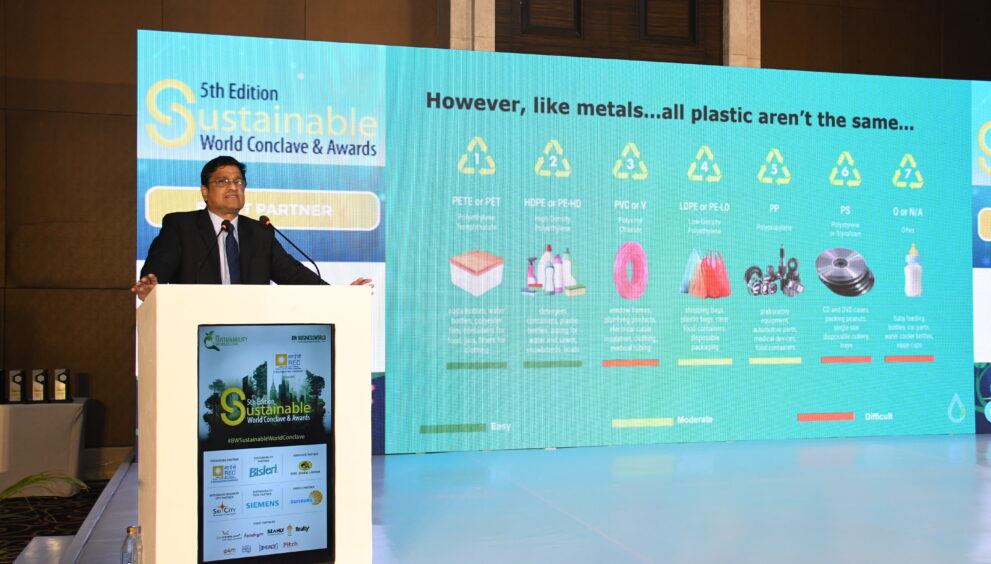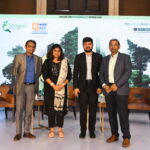Only 47% of Houses In Urban India Have Direct Water Connections

Angelo George urges people to understand plastic as a material and underscores its versatility and durability as the fundamental reasons it has imbibed itself in daily lives
In urban India, just about 47 per cent of houses have direct water connections, while 256 districts in India suffer from the acute water crisis, said Angelo George, Chief Executive Officer (CEO) of Bisleri International
During a keynote address at the 5th edition of the BW Sustainable World Conclave and Awards, George stated that 50 per cent of the districts in this country have contaminated groundwater with materials like arsenic and fluoride polluting these resources.
Reiterating the need for packaged drinking water, he said, “People need safe drinking water, at the same time, it needs to be affordable in a country like India.”
Notably, India has a very large garbage picking system and almost 60 per cent of plastic waste gets picked up. 92 per cent of PET gets picked up for recycling. The CEO added that the same plastic can be repurposed and reintroduced into the consumption cycle.
The next revolution calls not only for recycling but upcycling the product. That requires all stakeholders from consumers to industries to governments to come together. “Like metals, all plastics are not the same. The durability and recyclability of different plastics are different, but consumers club all plastics in the same bracket,” said George.
He asserted that two grams of plastic extend the shelf life of organic food by over 11 days. That same food being allowed to rot would have generated five times higher amounts of CO2 than what it takes to generate the plastic film.
The CEO added that 80 per cent of littering is intentional and there needs to be an effort to moderate consumption. George emphasised that most importantly consumers need to change the method of dispersal. He asserted that the solution is in people’s mindset, used plastic is not waste, it is valuable and can be reprocessed.
He explained that more than 70 lakh people are employed in the PET reprocessing industry and by 2030 it will become a USD 10.2 billion industry. George outlined the challenges with this saying, “About 82 per cent of recyclers are located in just seven states of this country. If someone in Odisha or Kerala must ship the material, the value chain of plastic gets disturbed due to large transportation costs.”
Innovative upcycling of plastic to add value ensures capital investments. Adidas Ocean Plastic shoes cost upwards of Rs 16,000 and only Rs 150 of PET goes into manufacturing the shoes. “Look at that significant value addition. That’s the kind of possibility in this industry, but we need to be innovative, and we need to make the entire process of recycling interesting,” said George.
The regulatory landscape has been changing since 2016. The National Green Credits programme rewards voluntary environmental contributions by individuals, farmer collectives, and corporations. These credits can be traded on a platform.
George pointed out, “Adopting global best practices is the way to go. Bangladesh has not had a single plastic bag for 15 years now while beaches in Sri Lanka hold every shack accountable to maintaining the cleanliness of the beach they are situated on.”






































































































































































































































































































































































































































































































































































































































































































































































































































































































































































































































































































































































































